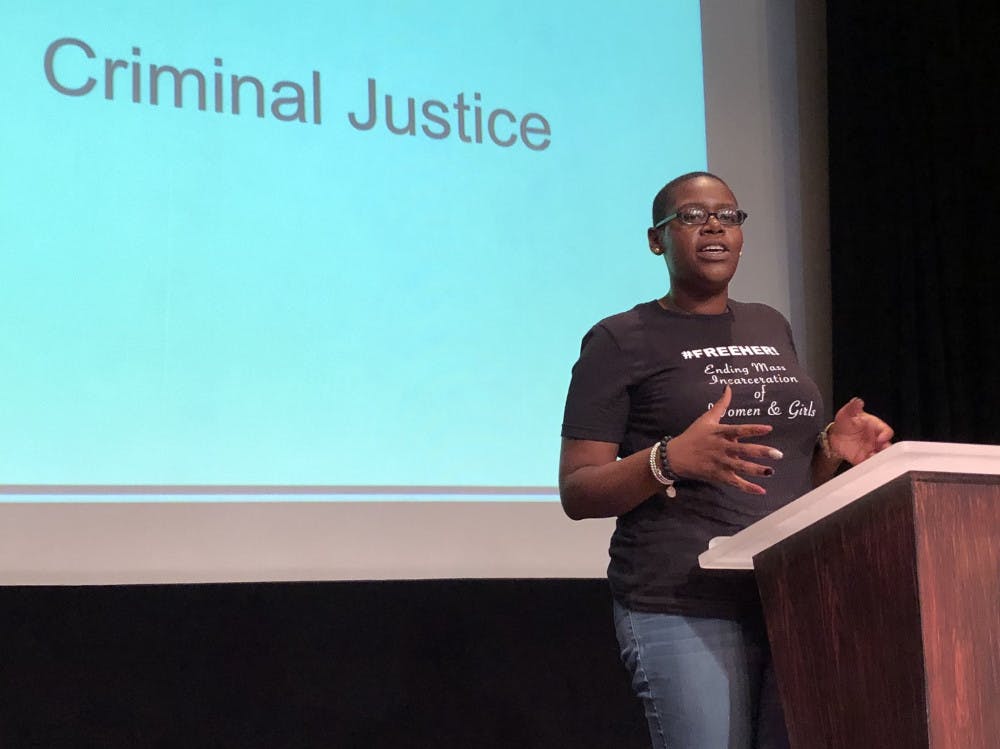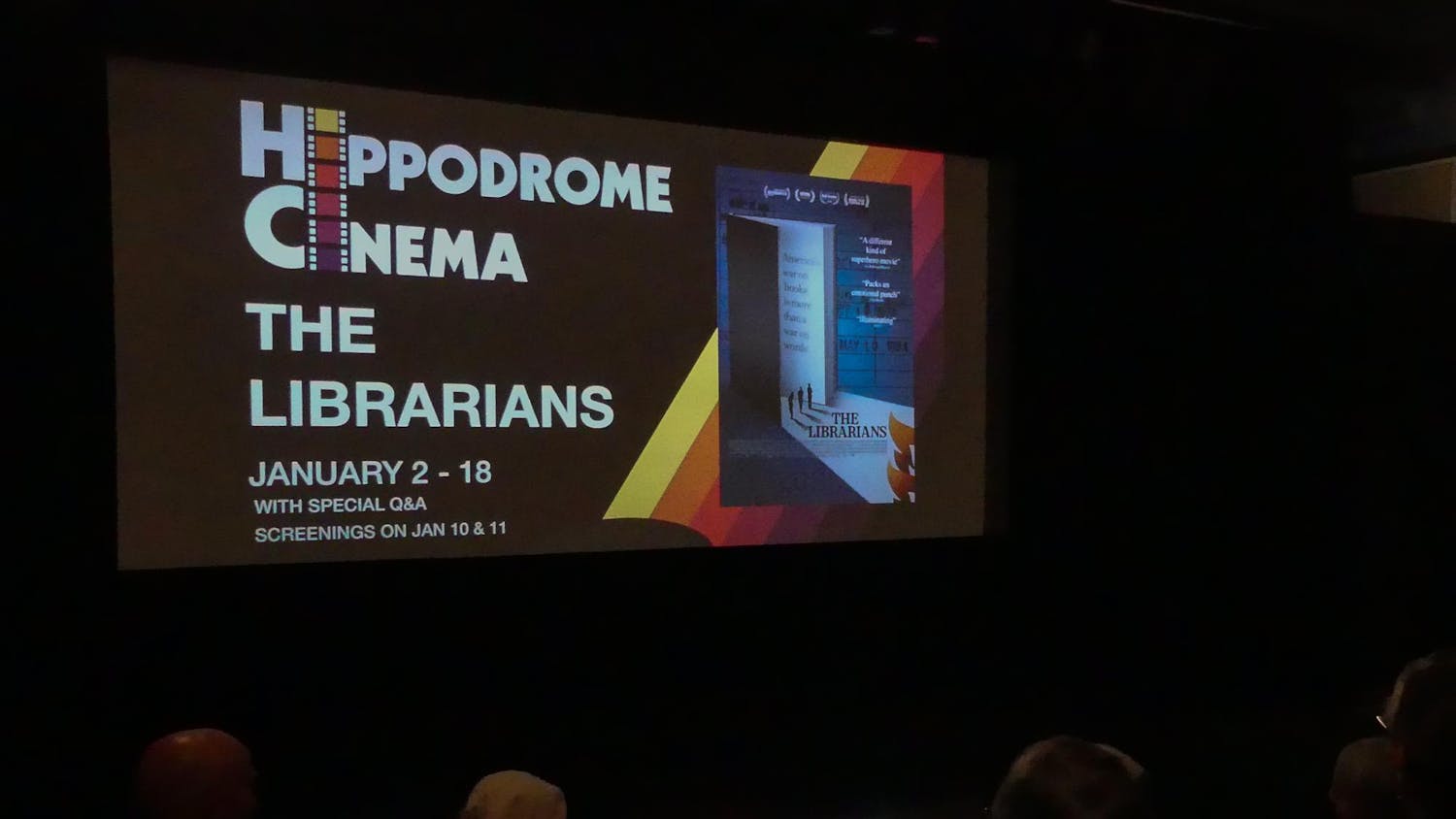Tequila McKnight took a deep breath, let out a slow exhale and looked out at the crowd of about 100 people filling every seat in the room at the Hippodrome State Theatre.
McKnight had never shared her story with anyone before, but Monday night she embraced vulnerability.
She recounted her difficult childhood growing up in East Gainesville where she was surrounded by drugs and fights and her experience being incarcerated.
“When you have the prison label on you, no one wants to give you a chance,” she said, “but they don’t know our stories or where we come from.”
McKnight and two other speakers brought their stories to light Monday evening for the second event in the series "Voices of Gainesville: Facing the Facts, Sharing the Stories.” The evening’s event focused on criminal justice.
The United Church of Gainesville Racial Justice Committee, Self Narrate, Hippodrome Theatre and NAACP are hosting the storytelling series to put a face and voice to the statistics of those most affected by racial disparities in Gainesville. The series focuses on housing and transportation, criminal justice and education.
Brandon Telg, the executive director of Self Narrate, said that through this event they hope to give people a better understanding of what Gainesville looks like in the hopes of moving forward toward a stronger community.
“Storytelling bridges gaps,” he said.
Jhody Polk has been sharing her story for about a year. Throughout the seven years she was locked up, Polk was able to discover who she really is, she said.
Polk wants to use her experiences and what she has learned to be a bridge for the community. She said it’s important for people to have the opportunity to transform the community with their stories.
“When they locked me up physically, mentally I became free,” she said.
Terrance Jackson, the third speaker, was incarcerated when he was 18 for selling drugs, he said.
When he was released, he didn’t come home to a clean pair of clothes or money to start a new life. Instead, he struggled to find a job and came to the realization that the consequences of his crime extended well beyond his jail time.
“I’m finding that im still paying a penalty for my incarceration,” he said.
At the end, community leaders told their personal stories and the challenges they face in addressing systemic racism.
Stacy Scott, the public defender for the EighthJudicial Circuit, said she would like to see the community pursue alternatives to incarceration, she said.
“It takes legislators who understand the issues and look at the facts instead of just reacting emotionally to be tough on crime,” she said.
Gainesville Police Department Chief Tony Jones said in efforts to change the incarceration rates, people need to vote, volunteer and perfect change on their own streets.
“A pair of handcuffs is not the only solution to a problem,” he said.
Contact McKenna Beery at mbeery@alligator.org and follow her on Twitter at @mckennabeery
Jhody Polk shares her story of incarceration






